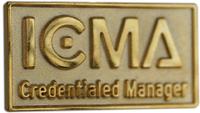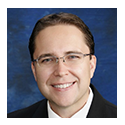
 Keith Regan (KR), managing director Maui County, is the first ICMA member in the state of Hawaii to join ICMA’s Voluntary Credentialing Program. Regan has spent more than nine years as managing director. He received a master of public administration degree from the University of Southern California and serves as a board member on the Boy Scouts of America, Maui County Council, and the Japanese Cultural Society of Maui. Earning the Credentialed Manager designation is a demonstration of his commitment to high standards of integrity and to lifelong learning and professional development. Read on to learn why he decided on a local government career and how he has benefited from the Credentialing Program.
Keith Regan (KR), managing director Maui County, is the first ICMA member in the state of Hawaii to join ICMA’s Voluntary Credentialing Program. Regan has spent more than nine years as managing director. He received a master of public administration degree from the University of Southern California and serves as a board member on the Boy Scouts of America, Maui County Council, and the Japanese Cultural Society of Maui. Earning the Credentialed Manager designation is a demonstration of his commitment to high standards of integrity and to lifelong learning and professional development. Read on to learn why he decided on a local government career and how he has benefited from the Credentialing Program.
ICMA: For you, what’s the best part of living and working in Hawaii?
KR: I love the fact that, in the middle of December, we can wear shorts and short-sleeve shirts. We can golf year-round and enjoy the beach with family and friends simply by driving 5-10 minutes from home. Reflecting though, I have to say that the “best” part is the community as a whole. The Aloha Spirit permeates and expresses itself in every aspect of life in Hawaii. It’s what makes working and living here incredibly special and unique.
ICMA: What attracted you to local government?
KR: I was at a crossroads in my life and was yearning for a career that would bring deeper meaning and greater impact, especially within my community. I was active in local nonprofits and service organizations, which helped open my mind and heart and ultimately led me to the public sector. One day, I was asked by a fellow Kiwanian if I might be interested in taking on a cabinet-level role in a newly formed administration. He was aware of my experience, education, and desire to branch out of the private sector. I spent some time contemplating the invitation and decided to apply. I never regretted making that decision as I’ve come to discover that public service is truly my passion, and the good work we do as public servants to help our community is what drives me every day.
ICMA: You started working for the county in 2011. What are the biggest changes you’ve seen?
KR: The three biggest changes I've witnessed since being in local government (starting in 2002) have been with transparency, social media, and the role of our county government.
As it stands today, there are volumes of publicly accessible information made available through our website. Back in 2002, that was not necessarily the case. Now, if you can imagine it, there is probably a dataset that is available for you to download. Transparency has opened doors and played a role in making government more interesting and accessible to the people. It has also reduced the time and energy that once was devoted to handling FOIA requests, since much of that information is now readily available online.
Social media has played an ever-increasing role as a communications tool with the public. We’ve found it to be invaluable, especially in situations that require quick dissemination of information such as emergency road closures and other critical messages that we would have sent through a press release to the media in the past. The public expects its local government to communicate in a way and method that is convenient to them, and social media fills that role.
Finally, I would have to say that the role our local government plays, in the eyes of our citizens, appears to be growing. As our federal and state governments reduce funding and resources for programs that our citizens depend on, our local government is looked to by our citizens for help. This puts an additional burden on our operations and has caused us to divert resources to address the gaps that have been created. From an average citizen’s viewpoint, it’s difficult to understand the differences in roles and responsibilities between the branches and levels of government. As a public servant, it’s natural for us to want to find ways to help our community, but it’s become more challenging as our budgets and resources get stretched to their limits.
ICMA: What has been the most rewarding experience so far in your job?
KR: There have been many rewarding experiences but, by far, the most rewarding has been my involvement in the Sugar Operators Support Task Force. A few years ago, we were informed that the last remaining sugar plantation in Hawaii would be closing its operations at the end of the year. Upon receiving this news, our mayor asked that I establish a task force to help the more than 600 soon-to-be-displaced workers find gainful employment. When I was asked, I recall getting a sinking feeling in my stomach that this was going to be one of those “make it or break it” assignments with the caveat that there was no room for failure.
To add some context, the sugar plantation had been a part of our community for more than 145 years, and many of our citizens can trace their roots back to sugar. Many of the plantation employees had family members who worked there currently or in the past through multiple generations. The 36,000 acres of sugar cane required more than 600 workers to plant, tend, harvest, haul, and process the cane in order to produce the final product. In a matter of 12 months, 100% of them would be out of work and in need of help.
We convened a small group of community partners to brainstorm and develop a path for our task force. This small group of 10 community partners grew into more than 50 members that included a broad base from the public and private sectors. We were able to get local, state, and federal elected officials involved and on the task force as well. Over the span of 12 months, we held numerous job fairs, brought in counselors to help meet employees' psychological needs, connected them with educational providers, provided them with access to federal financial assistance, and got the more than 600 employees on a positive track toward integration into a non-agricultural work environment.
By the thirteenth month, our task force concluded its function as it had successfully met its mission of helping these employees. It was rewarding to see how this large group of agencies, businesses, elected officials, and other public servants, with different perspectives, roles, and responsibilities, were able to work together toward a common goal and, most importantly, achieve that goal.
ICMA: Why did you decide it was important to become an ICMA Credentialed Manager?
KR: ICMA is an amazing organization that provides excellent advice, support, and guidance to its members. As a member, I've had the opportunity to attend numerous ICMA Annual Conferences and was always impressed by the level of commitment and dedication to their craft that Credentialed Managers displayed. My admiration led to my curiosity and eventually to my decision to walk the path toward credentialing. Becoming an ICMA Credentialed Manager is a commitment to the future of public management and service.
ICMA: The Voluntary Credentialing Program helps ICMA members focus and reflect on their lifelong professional development goals. What area(s) are you going to focus on and how do you think the program will help you reach your goals?
KR: Inevitably, there is always room to grow and improve the skills we have and the skills we need in order to be the most proficient and capable public managers we can possibly be. Finance and policy are the two primary areas on which I intend to focus my attention. Although I feel I have a good grasp on these skills, considering I previously served as the county's director of finance, it’s important to remain on top of new trends, approaches, and changes that might have a significant impact on our operations.
ICMA: What professional development programs have you participated in since joining the ICMA Voluntary Credentialing Program?
KR: Since joining the program, I’ve had the opportunity to participate in numerous professional development programs on such topics as understanding the new GASB retiree healthcare standards, cybersecurity, collective bargaining, how to work through board challenges, and the effective supervisory practices webinar series.
ICMA: How would you describe the value of the ICMA Voluntary Credentialing Program to someone considering applying?
KR: The ICMA Voluntary Credentialing Program is extremely valuable because it shows the world that you are willing to commit yourself to your profession on a whole new level. The requirements and expectations that are placed on you will not only benefit you as an individual, but will benefit the community you serve. Furthermore, the educational and growth components that you commit to, as part of this process, show your willingness to embrace the philosophy of continuous learning and a strong desire to maintain the highest standards in our profession.
Get more information on the ICMA Voluntary Credentialing Program.
New, Reduced Membership Dues
A new, reduced dues rate is available for CAOs/ACAOs, along with additional discounts for those in smaller communities, has been implemented. Learn more and be sure to join or renew today!
